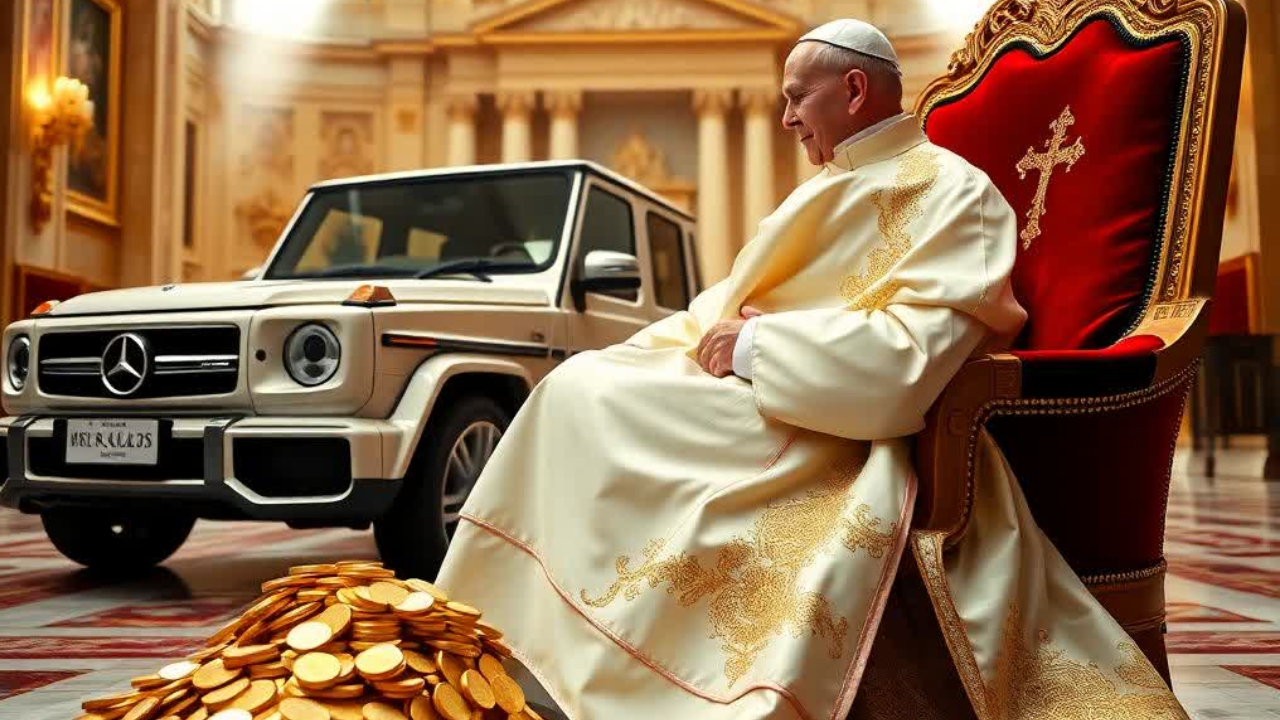Pope Francis, who passed away on April 21, 2025, led the Catholic Church as its 266th pontiff from 2013 until his death. As the sovereign of Vatican City and the Holy See, he managed one of the world’s most enduring financial institutions, overseeing billions in assets and revenue streams. For business and finance readers, his papacy provides a compelling case study of institutional wealth, fiscal stewardship, and the unique economic structure of the Vatican.
The Vatican’s Financial Portfolio: A Global Economic Force
The Vatican, under Pope Francis’s leadership, functioned as a sophisticated financial entity with diverse assets and income sources. As the head of state, he held ultimate authority over its economic decisions, positioning him as a key figure in a multi-billion-dollar operation.
Key Financial Components
- Real Estate Assets: The Vatican owns properties valued at approximately $1–4 billion, including prime Roman real estate and global Church-affiliated holdings, as estimated by Investopedia.
- Vatican Bank (IOR): The Institute for the Works of Religion manages $8 billion in assets across 33,000 accounts for clergy and religious entities, according to Reuters.
- Peter’s Pence Donations: Annual contributions from Catholics worldwide generate $50–100 million, funding charitable projects, per Vatican News.
- Tourism and Cultural Revenue: The Vatican Museums, hosting over 6 million visitors annually pre-COVID, generated $130 million in ticket sales, as reported by Bloomberg.
- Operating Budget: The Holy See’s annual budget is around $300 million, with a $90 million deficit in 2023 offset by reserves, per Catholic News Agency.
Pope Francis’s Fiscal Role
Pope Francis acted as the Vatican’s chief financial officer, approving budgets and spearheading reforms. His notable actions included:
- Vatican Bank Reforms: He enforced compliance with international anti-money laundering standards, earning a positive 2024 evaluation from Moneyval, the Council of Europe’s financial watchdog (Vatican News).
- Real Estate Oversight: He addressed a $200 million London property investment scandal in 2019, pushing for transparency and accountability, as detailed by Reuters.
- Cost-Cutting Measures: In 2021, he reduced cardinal salaries by 10% to mitigate budget deficits, demonstrating fiscal responsibility (Bloomberg).
These efforts highlight his strategic management of a complex financial system, balancing wealth with the Church’s mission.
Institutional Support: The Economic Perks of the Papacy
Pope Francis took no salary and held no personal assets, adhering to his Jesuit vow of poverty. However, the Vatican provided comprehensive support for his needs, offering a level of financial security comparable to that of high-level corporate executives.
Residence and Amenities
He lived in the Domus Sanctae Marthae, a Vatican guesthouse, opting for a modest suite over the Apostolic Palace. This arrangement included:
- Rent-free housing in Vatican City, a UNESCO World Heritage site.
- Access to dedicated staff for meals, cleaning, and security.
- Proximity to cultural treasures, such as the Sistine Chapel, valued in the billions.
Global Travel
Papal travel was a significant expense, funded by the Vatican and host countries:
- Chartered Flights: His 40 international trips, costing $1–2 million each, utilized Alitalia or equivalent airlines, per Catholic News Agency.
- Secure Transport: Custom Popemobiles, such as a $500,000 Mercedes-Benz G-Class, ensured safety during public appearances (NPR).
Ceremonial Assets
His role required specialized resources:
- Custom vestments, crafted by artisans like Gammarelli, cost thousands per set, funded by the Vatican.
- Liturgical items, such as gold and silver chalices, were used in papal masses, reflecting the Church’s institutional wealth.
These resources, while essential to his duties, provided a lifestyle free from personal financial burdens, akin to a CEO with a corporate expense account.
The Papacy as a Financial Institution: A Corporate Comparison
Pope Francis’s role parallels that of a corporate leader managing a global conglomerate, with distinct economic characteristics:
- Asset Oversight: He directed over $10 billion in Vatican assets, comparable to mid-sized corporations, though used for non-profit purposes.
- Compensation Structure: Unlike CEOs earning a median of $15 million annually in 2023, he received no salary but benefited from fully funded living and travel (Forbes).
- Global Influence: His decisions reached 1.2 billion Catholics, rivaling the stakeholder impact of Fortune 500 executives.
- Assets Managed: $10+ billion (Vatican) vs. $100M–$1T (company)
- Salary: $0 (vow of poverty) vs. $15M (median, 2023)
- Perks: Housing, travel, staff vs. Stock options, jets
- Stakeholders: 1.2B Catholics vs. Shareholders, employees
This analogy underscores his position as a financial leader within a unique institutional framework.
Economic Legacy and Future Challenges
Pope Francis’s financial legacy reflects both achievements and ongoing challenges:
- Increased Transparency: His reforms strengthened the Vatican Bank’s credibility, aligning it with global standards (Moneyval).
- Budget Strains: Persistent deficits, such as $90 million in 2023, signal structural issues that his successor must address (Catholic News Agency).
His passing on April 21, 2025, marks a pivotal moment for the Vatican’s financial strategy.
Conclusion
Pope Francis’s leadership of the Vatican showcased his ability to navigate a billion-dollar financial empire while upholding the Church’s mission. From managing $8 billion in Vatican Bank assets to leveraging $130 million in museum revenue, he operated at the helm of a global economic force. The institutional support he received—rent-free housing, chartered flights, and ceremonial resources—ensured a life of stability and influence. As the business and finance community reflects on his legacy, his papacy reminds us that spiritual authority and financial power can intersect in profound ways.

